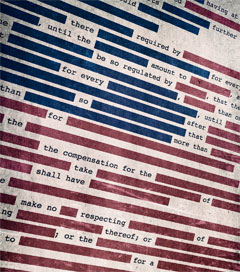by P.D. Lesko
While WCC officials have been timely and forthcoming in response to Freedom of Information Act requests for public records, the school sought to charge the faculty union thousands of dollars for access to Trustee emails.
RUTH HATCHER, ONE of three new trustees elected to the Washtenaw Community College Board of Trustees, was quoted in the school’s student newspaper as saying she wants to begin to fix the transparency issues by putting an end to the number of Freedom of Information Act (FOIA) requests the school receives.
“It’s ridiculous for anyone in Washtenaw County to have to FOIA information from the community college,” Hatcher told the student newspaper, adding that there are a few exceptions, such as personnel matters. “But any financial thing should be out there in the first place, online, and if it’s not there it should be given as soon as anyone asks for it.”
Hatcher also told The Washtenaw Voice she’s unsure of how exactly she will proceed with these actions as a trustee, but she plans to discuss them at meetings and charge the president with fixing the problems she sees.
Prior to The Ann Arbor Independent’s efforts to secure public records relating to WCC President Rose Bellanca’s use of her college-issued credit card, college officials received only “three or four” FOIA requests per year, according to staff.
In The A2 Indy’s experience, WCC officials who handle FOIA requests, Michele Benin and the college’s attorney, Lawrence Barkoff, have responded in a timely manner and provided the public records requested.
The paper’s most recent request for a list of WCC Foundation donors met with a plea for more time in order to determine whether the Foundation was legally obligated to provide the names of donors who gave in the month of June 2014 and the amounts of the donations given.
Even though the Michigan Appeals Court has ruled on this matter, the newspaper chose to allow WCC officials the 10 day extension as a courtesy.
In Jackson v. Eastern Michigan University Foundation, the court held that the foundation was a “public body” subject to the state’s Freedom of Information Act (FOIA). Under FOIA, a “public body” is defined, in part, as including: “[a]ny other body which is … primarily funded by or through state or local authority.” The court found that in 1992, the university transferred $7.7 million into the foundation, which constituted a majority of its funds at the time.Therefore, the court found, the foundation was a public body because it was primarily funded through the university.
Income tax returns filed by the WCC Foundation between 2009 and 2013 show that it is funded almost completely by the college, including being staffed by college employees whose salaries and benefits are paid for with money from the college’s general fund.
The A2 Indy requested the donors’ names and amounts given in June 2014 because Foundation officials provided the newspaper with a copy of a check written to WCC in the amount of $2,800 to reimburse a $2,876 meal purchased by Dr. Bellanca at Vinology in June 2014. The original receipt, turned over in response to a FOIA request, indicates that the meal was a “farewell” party for the the WCC Foundation’s previous director, Wendy Lawson.
Foundation officials then claimed the $2,876 had been reimbursed by an anonymous donor and thus no Foundation funds were used to purchase the meal. However, Dr, Bellanca used the college’s credit card to pay for a meal which included included wine, a violation of the college’s credit card use policy.
The newspaper then filed a FOIA for the names of all WCC Foundation donors for the month of June 2014, when the donation to reimburse the meal allegedly took place. The FOIA was denied with the explanation that the Foundation would have to provide the public records.
A request to WCC Foundation Director LeDuc was met with a request for a 10 day extension and an explanation that Foundation officials have little experience with FOIA requests.
The WCC Foundation provides scholarships to approximately 700 students and grants to a handful of faculty each year. The maximum amount of a WCC Foundation scholarship is $800. Named scholarships provide varying amounts according to the donors’ wishes. WCC recently announced the additional of 19 new named scholarships and $8 million in donations and pledged donations.
University foundations are non-profit entities that receive donations from private citizens and corporations to benefit the schools with which they are associated.
Over the years, many university foundations have grown into multi-million dollar organizations tasked with several fundraising missions: raising money for new or existing academic programs, alumni activities, scholarships, memorial funds, fellowships, endowed chairs, internships and the construction or renovation of facilities.
They may also accept gifts-in-kind, such as art, laboratory equipment, securities and real estate. How this money is raised and how it is spent can play an important role in shaping university policies and student life. Students, taxpayers and donors — often relying on the news media — all have a keen interest in tracking a foundation’s activity.
While foundations have undeniably benefited the universities they support, multiple reports of questionable, excessive and at times scandalous spending have highlighted the need for vigilant public scrutiny

